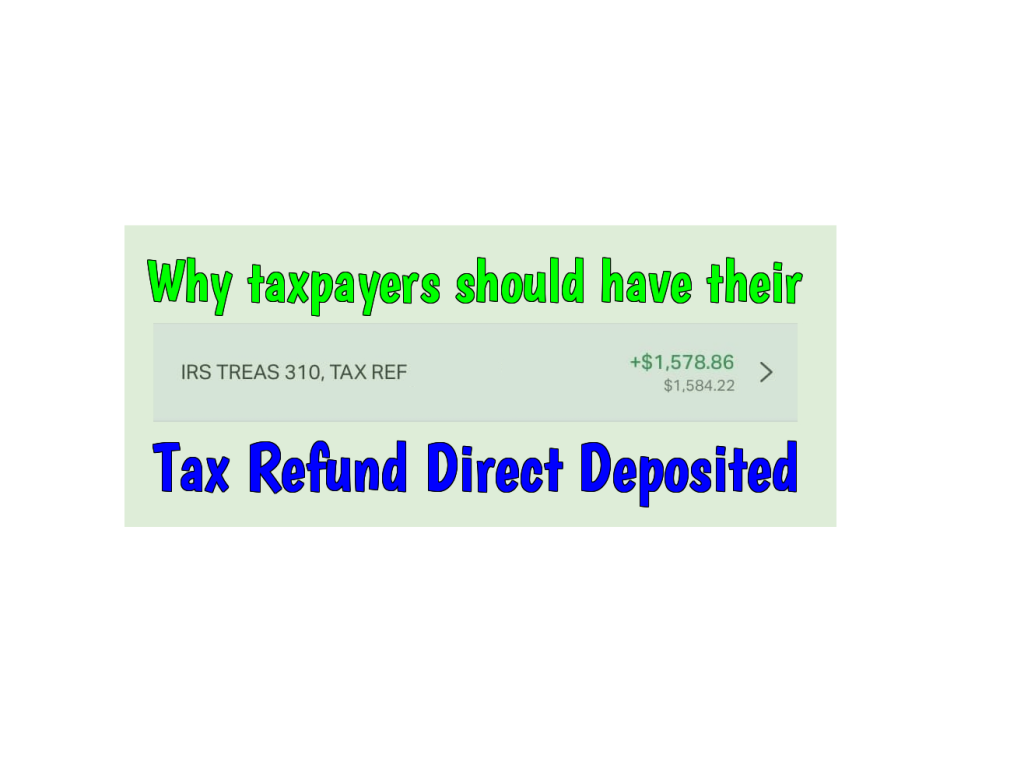
The IRS encourages taxpayers to file electronically when they are ready and choose direct deposit to get their refund. Direct deposit is the safest and most convenient way to receive a tax refund.
Here are some other benefits of choosing IRS direct deposit:
- It’s fast. The fastest way for taxpayers to get their refund is to electronically file and choose direct deposit. Visit IRS.gov for details about IRS Free File, Free File Fillable Forms, free tax return preparation and more. Taxpayers who file a paper return can also choose direct deposit, but it will take longer to process the return and get a refund.
- It’s secure. Since refunds are electronically deposited, there’s no risk of having a paper check stolen or lost in the mail.
- It’s easy. Taxpayers can simply follow the instructions when selecting direct deposit as a refund method and enter their account information as directed. They must enter the correct account and routing numbers when they file.
- It provides options. Taxpayers can split a refund into several financial accounts. These include checking, savings, health, education and certain retirement accounts. They should use IRS Form 8888, Allocation of Refund, Including Savings Bond Purchases to deposit a refund in up to three accounts. However, this form cannot be used to designate part of a refund to pay tax preparers.
Taxpayers should deposit refunds into U.S. bank accounts in their own name, their spouse’s name, or both. They should avoid making a deposit into accounts owned by others. Some banks require both spouses’ names on the account to deposit a tax refund from a joint return. Taxpayers should check with their bank for direct deposit rules.
Need help receiving your tax refund as a direct deposit
Taxpayers who don’t have a bank account can visit the FDIC website for information on banks that allow them to open an account online and how to choose the right account. Veterans can use the Veterans Benefits Banking Program for access to financial services at participating banks. Tax preparers may also offer electronic payment options.
Mobile apps may be an option
Taxpayers must have their routing and account numbers for direct deposit available when they are ready to file. The IRS can’t accept this information after a return is filed.
Some mobile apps and prepaid debit cards allow for direct deposit of tax refunds. They must have routing and account numbers associated with them that can be entered on a tax return. Taxpayers should check with the mobile app provider or financial institution to confirm which numbers to use.
Is there a limit on the number of IRS tax refund deposits
There is a limit of three direct deposit refunds made into a single financial account or prepaid debit card.

